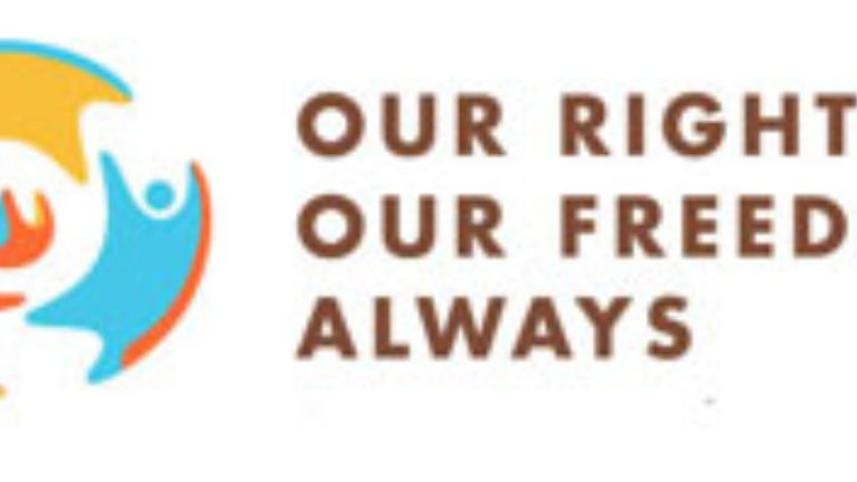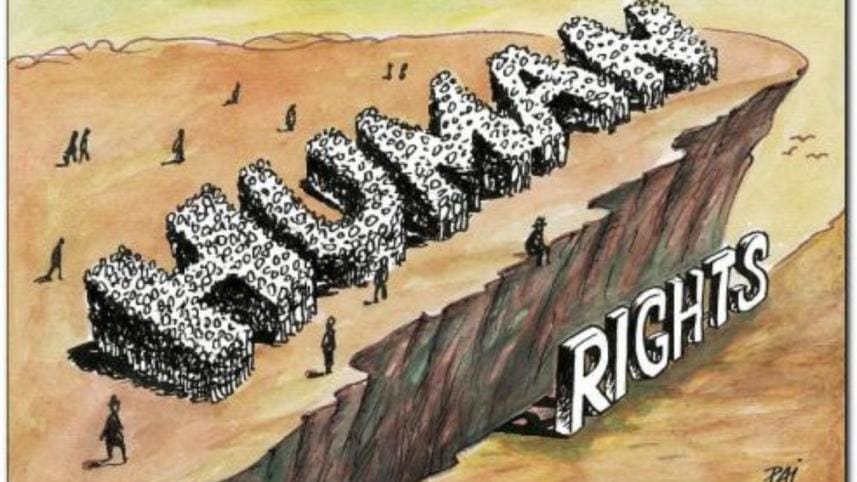A life of dignity for all

This day in 1948, the United Nations General Assembly adopted the Universal Declaration of Human Rights. The date is a reminder of the common standard for a dignified life for all peoples in all nations. This year, we recall the fundamental freedoms that underpin human rights that are still relevant today, not only in Bangladesh but also globally, i.e. freedom from fear and want and freedom of speech and worship. As the theme and slogan for 2015 reads, these are "Our Freedoms – Our Rights – Always".
Bangladesh has voluntarily taken obligations under eight international human rights treaties, and therefore committed to provide civil, cultural, economic, social or political rights to all its individuals and peoples, without distinction of any kind. Over the years, Bangladesh has regularly engaged with the United Nations on issues such as ending discrimination against women and girls, and ensuring the rights of the child. During 2015, Bangladesh also engaged on civil and political rights reporting and hosted the visit of the Special Rapporteurs of the Human Rights Council on freedom of religion or belief. Furthermore, Bangladesh is currently a member of the Human Rights Council and has established a National Human Rights Commission which brings further responsibilities, both at the international and national level. This clearly shows Bangladesh's desire to be a part of the global community promoting human rights.

Bangladesh's socio-economic strides over the last decade have contributed to the enjoyment of human rights in education, health, and work. However, this progress is not reaching all, and some are potentially falling behind, in particular, those who may not have a legal status in the country. Furthermore, economic and geographical disparities, and discrimination against women, are still present. Recent global development processes, the Millennium Development Goals (MDGs) and Sustainable Development Goals (SDGs), highlight the need to address inequality in order to ensure progress for everyone. This is a clear message and provides focus and guidance for the future.
In Bangladesh, the National Development Plan provides the entry point and platform for progress in addressing inequalities. The Plan is aligned with the newly adopted SDGs and coupled with national targeting, robust monitoring, effective implementation and follow-up structures, including participatory processes which will help to ensure that no one is left behind when the nation is progressing. The National Human Rights Commission can play a vital role here, for example, through monitoring rights-based implementation.
But human rights are not only social and economic in nature. Life in dignity does not exist unless civil and political rights can also be enjoyed. The freedom from fear is as important as the freedom from want. Bangladesh is a young nation that still struggles with its past which influences the overall environment of civil and political rights. The Constitution includes fundamental rights and references to personal liberty; safeguards as to arrest and detention; respect of trial; freedoms of movement, assembly and association and; freedoms of religion, conscience and speech. While this is welcomed, some challenges and inconsistencies in legislation and implementation have been observed and issues such as deaths in custody or during arrests, interference with investigations and judicial procedures, abductions or disappearances, arbitrary arrests and intimidation of journalists, members of opposition and civil society actors, and violence against and harassment of women and girls, etc., continue to be reported. It is of utmost importance that all such allegations are investigated through credible and independent inquiry bodies and that those responsible are prosecuted and punished if violations have occurred. This is part of effective national protection systems and inextricable from developmental progress.
Today also symbolises the 16th day of activism to end violence against women. The intersection with Human Rights Day reminds us that violence against women constitutes a human rights violation and needs to be addressed with utmost seriousness and vigour. Violence has very real consequences on the ability of women and girls to contribute to society. By overlooking this, we risk undermining social values and the potential for future progress.
While the journey to the full enjoyment of human rights is on-going, and never-ending, this day reminds us of what remains to be done and the importance of the participation and contribution of each and every one of us to ensure a life of dignity for all.
The writer is United Nations Resident Coordinator in Bangladesh.

 For all latest news, follow The Daily Star's Google News channel.
For all latest news, follow The Daily Star's Google News channel.
Comments